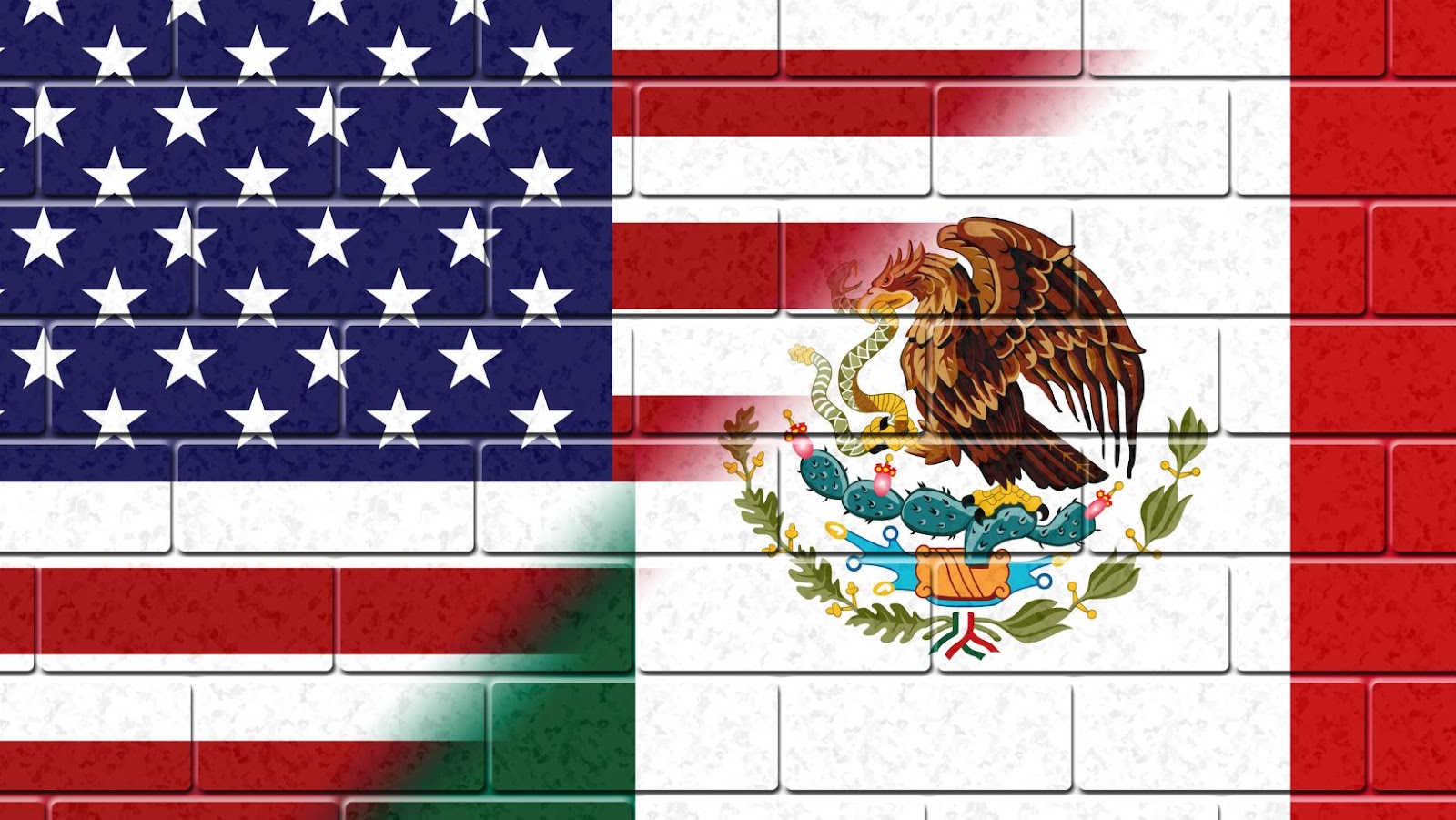On January 20, 2021, former Google engineer Anthony Levandowski was granted a full pardon by former President Donald Trump in an unexpected move. The news of the pardon sparked widespread interest, with many asking the same question: Why did Donald Trump pardon the former Google engineer?
To answer this question, it is important to explore the circumstances behind the pardon and its implications.
Former google engineer pardoned by donald trump
In December 2020, former Google engineer Anthony Levandowski was pardoned by President Donald Trump. Levandowksi had been charged with economic espionage, after downloading thousands of confidential documents related to the development of self-driving cars while working at Google.
The pardon caused quite a stir, as it raised serious questions about the legal system in America. Was it a sign that a powerful President had stepped in to protect the wealthy and influential? Was justice served or denied?
In this article, we will take an in-depth look into Anthony Levandowski’s case and provide an overview of all the events leading up to his infamous pardon by President Donald Trump. In addition, we will examine what happened before and during his indictment, discuss why he might have been pardoned, and explore potential implications for other cases involving Intellectual Property (IP) theft.
Reasons for the Pardon
On December 23rd, 2020, President Donald Trump issued a full presidential pardon by former Google engineer Anthony Levandowski. The pardon came after Levandowski pleaded guilty to stealing trade secrets from Google and received a sentence of 18 months in prison.
This pardon raised many questions, so let’s examine why Donald Trump chose to pardon the former Google engineer.
Trump’s Relationship with Silicon Valley
Donald Trump’s relationship with Silicon Valley has been strained due to his hardline stance on immigration policy and his opposition to net neutrality. As President, Trump rarely engaged with the leading companies of the technological industry, often referring to it as a “bunch of bad actors” who were “taking advantage” of the American public. Even so, he was not unwilling to protect individuals if it suited his political strategies.
In fact, before granting a full pardon to Anthony Levandowski, a former Google engineer charged with 33 counts of theft and attempted theft in August 2019, Trump had issued several pardons to executives from technology companies.
This pardon appears to be more strategic than anything else; by granting pardon for the former Google engineer in August 2019, Trump is likely positioning himself for the 2020 election in front of California voters – a state that voted heavily against him during the 2016 election – and reaffirming his commitment as an outsider candidate for Silicon Valley interests and concerns. Moreover, Trump sees Silicon Valley technology executives as “industry trailblazers” whose accomplishments allow them permission from criticism despite their association with questionable business practices.
Ultimately, this pardon may serve more than one purpose – garnering electoral votes while standing up for those he perceives as extraordinary figures who deserve lenient treatment by law enforcement.
Political Pressure from Silicon Valley
In recent years, Silicon Valley has increasingly become a place of political power. As these tech companies have grown, they have invested in lobbying and rallied their employees to support causes that benefit their products and services.

The outcry for a pardon for the former Google engineer is an example of how Silicon Valley’s political clout can influence decisions made by the White House. For many in the industry, the former employee’s decision to share his work with China was a harmless violation of trade laws. That, coupled with pressure from influential investors and entrepreneurs, likely played a role in Trump granting him reprieve from pending charges.
Moreover, suspending criminal prosecution may provide some much-needed good will for tech companies who often face tough scrutiny around enabling foreign adversaries to access sensitive U.S. technology resources. While it is possible that other factors played into Trump’s decision making process, the consensus among many in Silicon Valley argues that tech’s surging political power and lobby efforts were at least partially responsible.
Trump’s Belief in the Innocence of the Former Google Engineer
On January 12, 2021, US President Donald Trump issued a full pardon to former Google engineer Anthony Levandowski. This decision raised a few eyebrows since Levandowski had only recently been sentenced in late August 2020 following his conviction on 33 counts of trade secret theft. Nevertheless, the pardon was viewed by many as an acknowledgment of Trump’s belief that Levandowski is innocent.
Trump stated: “After his conviction and imprisonment, evidence has come to light suggesting that Mr. Levandowski may be innocent.” He went on further to explain why he granted him a pardon citing that “he has paid a significant price for the actions which gave rise to his conviction,” and noted that it will not change the conviction “or the underlying facts of the matter.”
Trump’s decision came following submissions made by prominent figures such as Elon Musk, Travis Kalanick and Larry Page who were all outspoken supporters of granting amnesty to Levandowski. Through their influence entirely separate from any legal claims made by the defence team or extended family members, they highlighted how this theft disproportionately affects startups and tech innovation more broadly.
Although Trump’s motivation for this unprecedented decision is unknown at this stage, whether it was an act of mercy or business interests are matters under debate. Regardless, what is certain is that this latest move has stirred up more debate around the fairness of intellectual property laws and how they are applied particularly within high-tech sectors.
Criticisms of the Pardon
In the final days of his presidency, Donald Trump issued a presidential pardon for the former Google engineer Anthony Levandowski, who had been sentenced to 18 months in prison on charges of stealing trade secrets from Google. The pardon has sparked widespread criticism from both sides of the political aisle.

This article will explore the criticisms of the pardon, examining the reasons why it has been called into question:
Unfair Treatment of Other Prisoners
One of the main criticisms of President Trump’s decision to pardon former Google engineer Anthony Levandowski is that it sets a dangerous precedent regarding unequal and unfair treatment of other incarcerated people in the United States. Levandowski’s treatment by the government and president was much more lenient than for many other prisoners who committed lesser offences or had more dire financial circumstances. Furthermore, many political analysts speculated that Levandowski was an example of cronyism between the Trump Administration and large corporate interests.
The overarching issue then becomes why isn’t this same leniency applied to all prisoners? While Anthony Levandowski may have assisted in various aspects of society, numerous other individuals incarcerated can make similar arguments for leniency but do not get it due to economic and racial disparities already built into our justice system. Granting clemency or commutation can help to:
- reduce overcrowding
- eliminate hardships on families resulting from long sentences without parole or chance for release
- save taxpayers money
- lead to better rehabilitation outcomes
- encourage lower recidivism rates.
Unfortunately, despite President Trump’s stated commitment “to look at the policy initiatives my Administration has taken over the past four years that make our Justice System fairer,” such promises appear not to have been embodied in his actions thus far with regards to granting pardons and clemency for individuals already imprisoned – including Mr. Levandowski. As the nation looks towards a future beyond the Trump Administration, steps must be taken towards ensuring equal justice regardless of race or socioeconomic status when considering commutations while maintaining appropriate punishments for those guilty of serious crimes.
Lack of Transparency in the Pardon Process
The lack of transparency in the pardon process has been a major criticism of the recent pardon granted to former Google engineer Anthony Levandowski. Levandowski pled guilty to stealing trade secrets from Waymo and was sentenced to 18 months in federal prison in August 2020. However, pundits have questioned why the President pardoned Levandowski without explanation.

Critics point out that the executive pardon power should be used judiciously and with due consideration for public opinion on those pardoned. This is especially true regarding politically charged cases, as there is often much media coverage and public debate over any given pardon decision. The lack of a clear explanation or rationale behind the president’s action regarding Levandowski has caused confusion and concern among many legal experts and members of the public.
Others have raised questions about whether political connections, rather than merits or justice alone, may have been factors in President Trump’s decision-making process this time. For instance:
- President Trump’s daughter-in-law Lara Trump sits on the board of Levandowski’s new venture Ivan Labs, which builds artificial intelligence for self-driving cars;
- Two high-profit advisors – Elon Musk and Peter Thiel – were named as supporters in an online petition seeking clemency for Mr. Levandowski from President Trump generated by one of his lawyers before a sentence being issued.
All these coincidental links involving powerful people close to President Trump beg further investigation into who might have wielded influence over his ultimate decision on Mr. Levandowski’s case.


More Stories
Exploring the Mind of A Poker Player: Becoming An Expert by Understanding Human Behavior
The Importance of General Atlantic’s Climate Solutions Fund
How will this acquisition impact Zynga’s competitors?